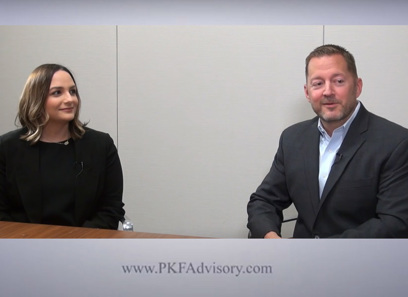M&A Outlook: The Role of Economic Factors in Shaping Global Mergers and Acquisitions
M&A Outlook: The Role of Economic Factors in Shaping Global Mergers and Acquisitions
Blog Article
Exploring the Financial and legal Aspects of Mergers and Acquisitions Transactions

Overview of Mergers and Acquisitions
Mergers and acquisitions (M&A) stand for a significant section of business method, with plenty of purchases taking place worldwide annually. These critical maneuvers are largely intended at boosting affordable benefit, broadening market share, and attaining functional synergies. M&A tasks generally come under two distinctive groups: mergings, where two business integrate to develop a new entity, and acquisitions, where one company acquisitions an additional, hence keeping its identity.
The inspirations behind M&A purchases are differed. Business may seek these approaches to expand their item offerings, get in new markets, or leverage technological innovations (Economic factors influencing M&A). In addition, M&A can offer as a means to get rid of competition or access to beneficial copyright
The process of M&An entails a number of stages, consisting of target recognition, settlement, appraisal, and combination. Effective deals require detailed due diligence to assess monetary health and wellness, operational capacities, and potential responsibilities of the target company. Social placement in between merging entities plays a vital role in making sure a smooth change and long-term success. As services browse the complexities of M&A, understanding the possible challenges and calculated imperatives is essential for attaining wanted results in a significantly competitive landscape.
Legal Framework and Compliance
Understanding the legal framework and conformity needs bordering acquisitions and mergers is necessary for navigating the complexities of these deals - Economic factors influencing M&A. These processes are governed by a myriad of regulations at both federal and state levels, which intend to make certain reasonable competition, safeguard stakeholders, and copyright company governance standards
Key governing bodies, such as the Federal Profession Commission (FTC) and the Stocks and Exchange Payment (SEC), impose antitrust laws and securities guidelines, respectively. Firms need to conduct extensive due diligence to recognize any type of potential lawful challenges, including anti-competitive problems or regulative approvals essential for an effective transaction.
In addition, compliance with disclosure obligations is important, specifically when public business are entailed. This consists of filing needed paperwork and supplying accurate information to shareholders and governing authorities.
Cross-border M&A deals present additional layers of intricacy, as differing legal criteria and regulative frameworks must be navigated. Involving lawful guidance with know-how in mergers and purchases is important to make sure adherence to relevant laws and to alleviate risks. Therefore, recognizing these lawful frameworks not only assists in conformity but additionally enhances the possibility of a efficient and successful merger or purchase.
Financial Assessment Techniques

Among the most common strategies are the Reduced Cash Money Circulation (DCF) evaluation, which estimates the existing worth of predicted future cash money circulations, and the Similar Firm Analysis (CCA), which examines a firm's value family member to comparable firms within the exact same sector (Economic factors influencing M&A). Furthermore, Criterion Purchases Analysis (PTA) analyzes historic procurement data to develop standards for valuation
One more considerable approach is the Asset-Based Valuation, which concentrates on the business's web property value, offering a concrete evaluation of worth by taking into consideration both long-term and current liabilities and assets. Each method has its staminas and restrictions, commonly varying in applicability relying on the nature of the sector and the organization context.
Inevitably, using a mix of these monetary assessment strategies can produce a detailed understanding of a business's value, helping to ensure that both sellers and customers take part in fair and fair transactions during the detailed process of mergings Economic factors influencing M&A and procurements.
Due Persistance Process
Conducting comprehensive due diligence is vital to revealing essential details concerning a target firm prior to finalizing a merging or purchase. This process entails a detailed evaluation of the target's monetary, operational, lawful, and regulative aspects. The key goal is to identify possible dangers and liabilities that may affect the purchase's value or post-merger performance.

In addition, social due diligence evaluates the compatibility of the combining entities' business cultures, which is essential for an effective combination. The due persistance procedure calls for partnership among various stakeholders, consisting of legal counsel, economic experts, and market professionals, to ensure an all natural understanding of the target business.
Ultimately, the searchings for from due diligence inform arrangement techniques and may bring about modifications in the purchase cost or terms, thereby protecting the interests of the acquiring event and preparing for an effective merger or acquisition.
Post-Merger Assimilation Obstacles
While successful mergers and procurements frequently produce substantial synergies and growth chances, the post-merger assimilation phase provides a myriad of obstacles that can undermine these benefits. One of the primary concerns is the social integration of the merging entities.
One more considerable obstacle exists in aligning processes and systems. The combination of inconsonant IT systems, functional techniques, and financial reporting can be taxing and complex, commonly bring about operational disruptions. Additionally, the failure to interact efficiently during this phase can lead to complication and misinformation among consumers, staff members, and stakeholders.
Financial combination likewise positions challenges, particularly in reconciling financial plans and accounting methods. This misalignment can cause variances in economic coverage, affecting stakeholder confidence and market understanding.
Last but not least, regulative compliance issues might develop, requiring meticulous focus to lawful demands. Resolving these obstacles immediately and tactically is important for understanding the expected benefits of a merging or purchase, ensuring lasting success and stability.
Conclusion
To conclude, the elaborate landscape of procurements and mergers requires a detailed understanding of both economic and legal facets. Adherence to regulative structures ensures conformity and reduces anti-competitive risks, while durable financial appraisal strategies provide important understandings into business well worth. A complete due diligence procedure is important for determining possible challenges, ultimately resulting in a lot more reliable post-merger integration. Successful navigation of these elements dramatically enhances the chance of achieving wanted end results in M&A transactions.
The elaborate landscape of mergers and acquisitions purchases requires a detailed understanding of both legal frameworks and financial assessment approaches. Governing bodies, such as the FTC and SEC, impose stringent conformity demands to protect against anti-competitive actions, while durable monetary analysis strategies are essential for properly examining a business's value. Effective deals require detailed due persistance to evaluate economic health, functional abilities, and potential responsibilities of the target business.Financial due diligence checks out historical and predicted monetary statements, cash money flow analysis, and tax conformity. Adherence to regulatory frameworks ensures conformity and alleviates anti-competitive risks, while robust economic assessment techniques supply vital understandings into firm worth.
Report this page